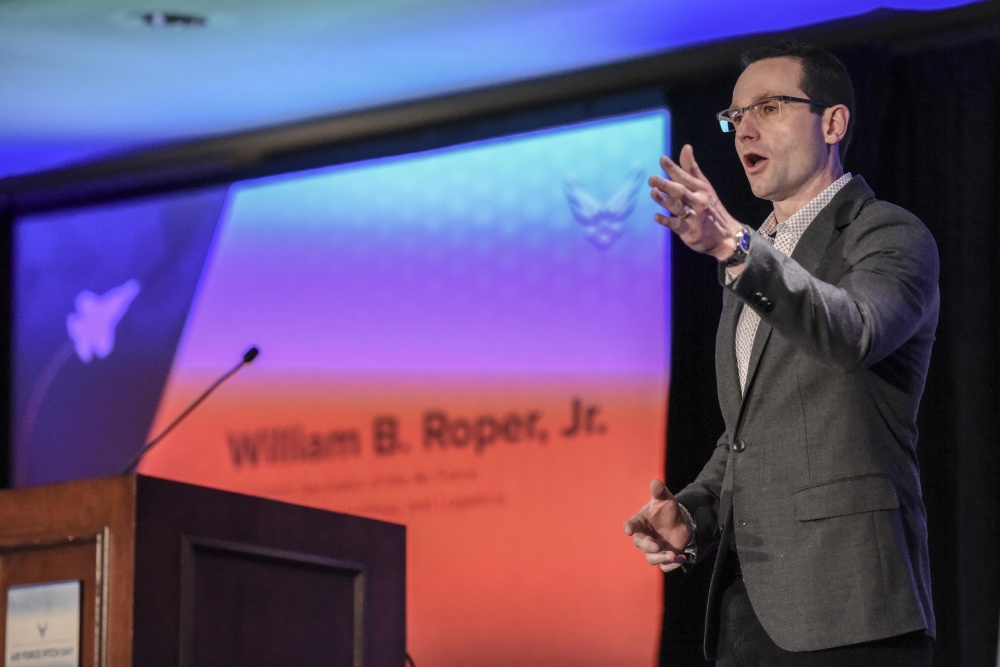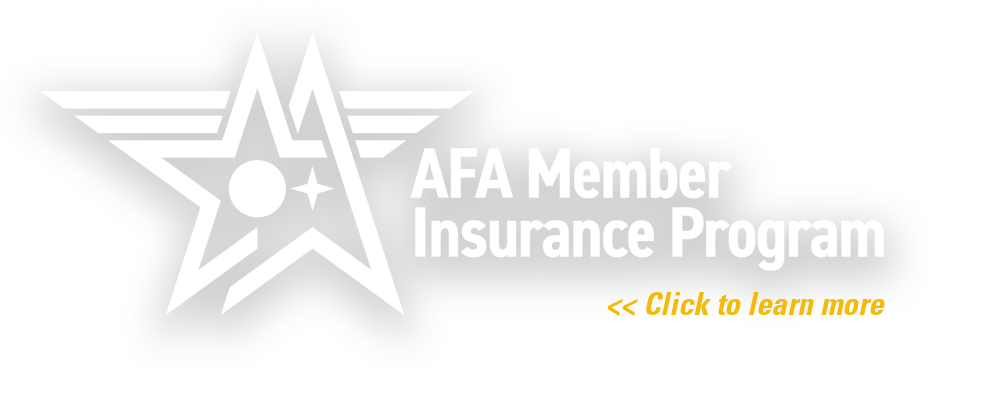
Dr. Will Roper, assistant secretary of the Air Force for acquisition, technology, and logistics, gives his opening remarks at the inaugural Air Force Pitch Day in Manhattan, New York, March 6, 2019. Air Force photo by Tech Sgt. Anthony Nelson Jr.
Fifty-nine small businesses from 24 states came together in New York City on March 6-7 to pitch their innovative ideas to the Air Force in the hopes of breaking into the daunting world of military contracting.
Each of the companies had just 15 minutes to sell their ideas, which ranged from artificial intelligence that can help analysts quickly pore through troves of data to medical devices that will help pararescue jumpers stabilize patients in the field.
The Air Force on Wednesday awarded 51 initial phase one contracts, immediately delivering $3.5 million with the swipe of a government credit card, with another $5.25 million to be delivered later.
Of the 51 contracts awarded, 16 were related to command, control, communication, intelligence, and networks; 19 were related to intelligence, surveillance, reconnaissance/special operations forces; and 16 were digital awards.
“We think we averaged getting you not just on contract, but paid, 15 minutes after your pitch,” Will Roper, assistant secretary of the Air Force for acquisition, technology, and logistics, told an audience of government, industry, and academic professionals at the service’s first “Pitch Day.” “The fastest we did was three minutes,” added Roper, noting it shattered the previous record of three months.
Col. Dale White, the program executive officer for ISR/SOF, said one company told him it was “quicker to get an Air Force contract than it is to get a beer in New York City.”
Roper said the Air Force received some pushback from “people in Washington who thought the credit card deal was a gimmick,” but he said it was the only way the service could find that would allow it to award a contract and pay a company in a day, instead of making them wait 120 days or more, which could break some small companies.
Securisyn Medical received funding for its SolidAIRity device — a fully integrated airway stabilization system that can provide much-needed stabilization to ventilated patients. Company co-founder Elyse Blazevich said more than 33,000 people will be killed in 2019 due to unplanned extubation — when a tube that’s been inserted into a patient’s airway is pulled out prematurely or inadequately.
“In austere conditions of combat casualty care, if you don’t have an airway, you don’t have a patient,” Blazevich said in her pitch.
Securisyn not only pitched its idea to Air Force contracting officers and the program executive officer, but also to special operators in the room, who could provide real-time feedback on how the device might actually be used.
For example, after PJs intubate someone who is wounded in combat, they are required to monitor that patient until the tube is successfully removed. The SolidAIRity device would allow them to stabilize the patient until they get to a field hospital, freeing them up to help other wounded troops.
“We found ourselves asking, ‘How do we not already have this capability,’ ” White said.
That face-to-face interaction was one of the big “learning moments” for Roper, who said some of the companies that weren’t rated as high based solely off their paper proposal quickly jumped to the top of the list after their presentation.
More than half of the companies who received contracts had never worked with the US government before. Vice Chief of Staff Gen. Stephen Wilson said lowering the access barrier and making it easier to working with the Air Force was “one of the key things that happened this week.”
And for the few companies that didn’t walk away with a contract, Roper urged them to try again.
“Keep us in your address book. You pitched 60 ideas to us this week. That’s awesome, but we need that number every month, year-after-year, to be competitive,” he said.

